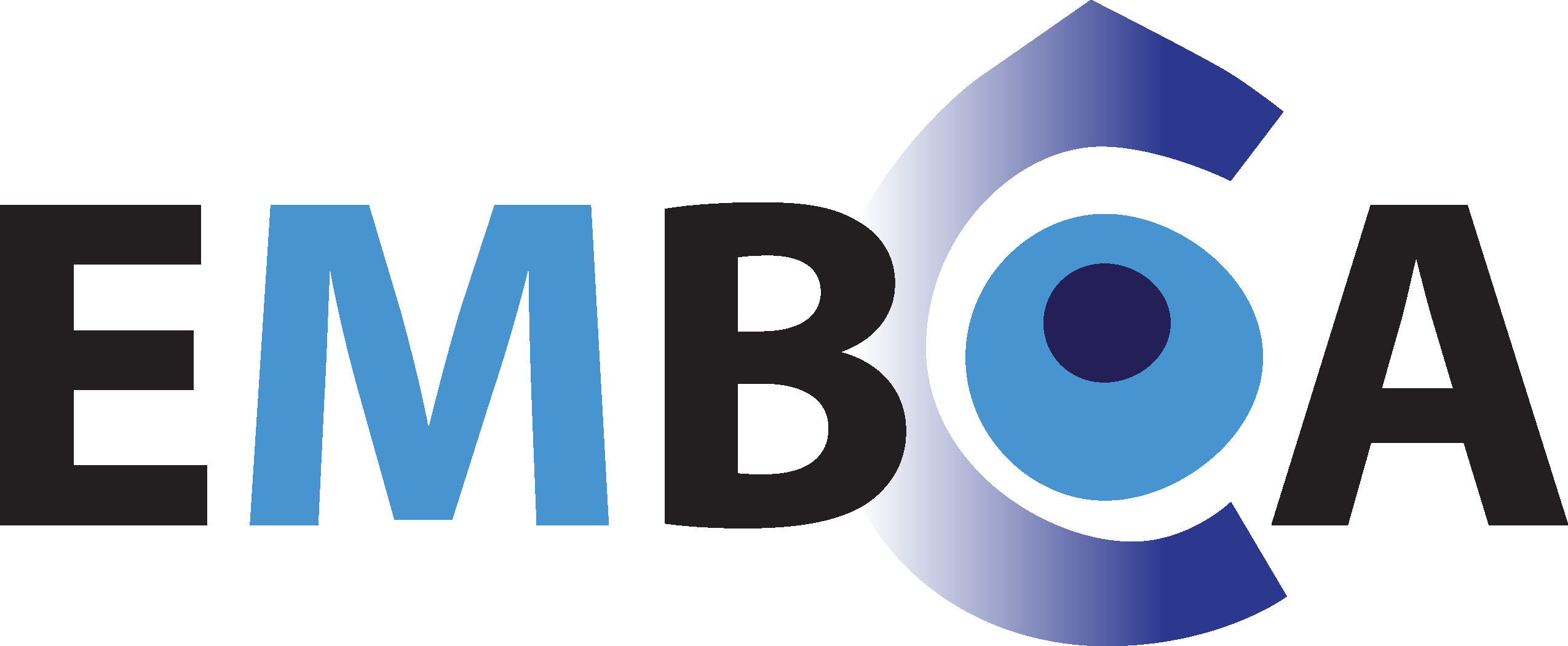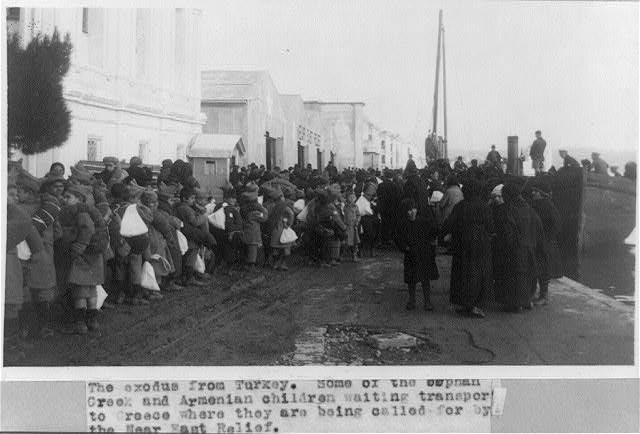 |
| Greek and Armenian orphans ready themselves to board boats taking the orphans to mainland Greece in 1915. Credit: Near East Relief/Library of Congress |
The thousands of Greek orphans who were taken abroad from 1821 through the 1960’s were the topic of a recent seminar hosted by the Eastern Mediterranean Business Culture Alliance (EMBCA), which brought together experts from around the world to discuss the triumphs and tragedies of the past.
Tens of thousands of ethnically-Greek orphans — or, more often, children who were simply without fathers, due to war or other causes — were taken abroad to be adopted or put into orphanages in Turkey and Greece after the war killed so many family breadwinners and disrupted normal life in the country.
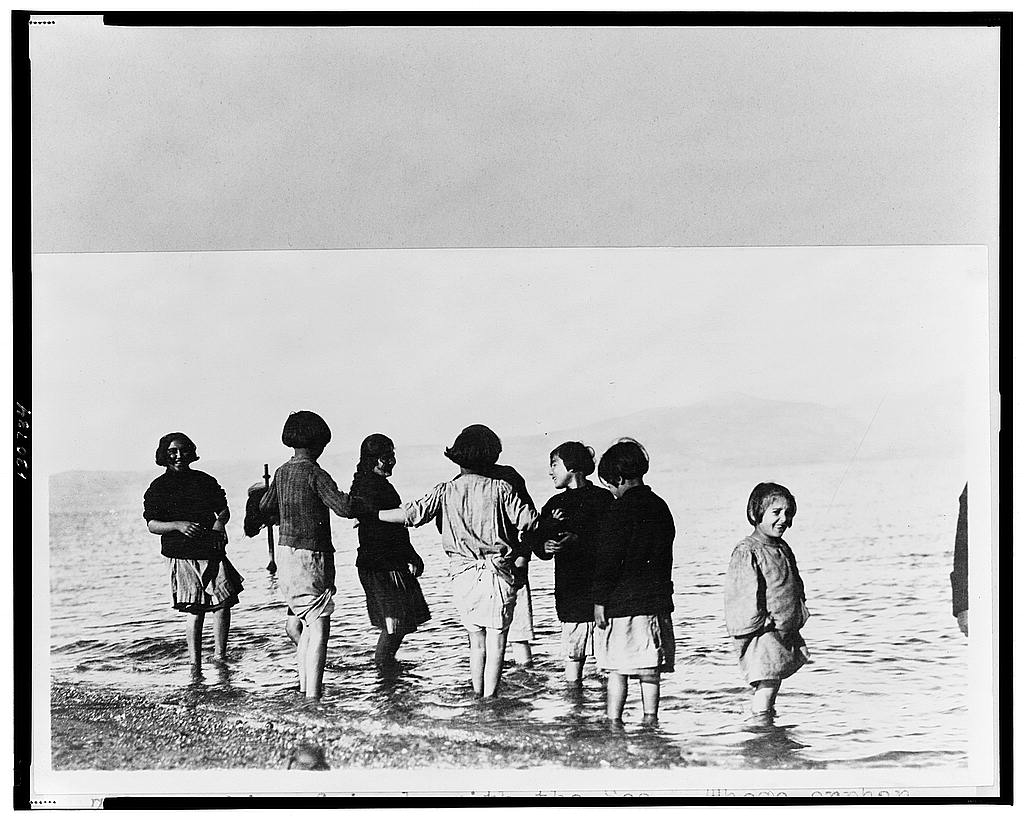 |
| Greek and Armenian orphans ready themselves to board boats taking the orphans to mainland Greece in 1915. Credit: Near East Relief/Library of Congress |
But it wasn’t only the War; it was the Ottoman Turks’ genocide of the Greeks that happened afterward, during the 30 year period from 1894-1924, that caused so many Greek children to be spirited away to other lands, most of them never to return. Much later, during the Cold War, Americans and Europeans also adopted thousands of Greek youngsters — many of them becoming completely assimilated at such a young age that they had no connection to their roots whatsoever.
Greek Orphans Event
The panel was moderated by Lou Katsos, the president of the EMBCA. Dr. Gonda Van Steen, the Director of the Centre for Hellenic Studies at King’s College; Historian and Author Dr. Constantine Hatzidimitriou, and Dr. Theodosios Kyriakidis, the Chair of Pontic Studies in the School of History and Archaeology at Aristotle University of Thessaloniki were the presenters.
Longtime Florida Congressman Gus Bilirakis, from Tarpon Springs, the co-Chair of the Congressional Hellenic Caucus, also took part in the presentation.
Greece stripped of her people through war, genocide, economic problems and social chaos
The very etymology of the word “orphan” is Hellenic — from the word ὀρφανός, meaning is a child whose parent(s) have died, are unknown or have permanently abandoned them.
Greece’s many wars, genocides, economic problems, social chaos, and natural disasters caused this unwanted exodus, which has ended up enriching other nations and stripping Greece of many of her people over the centuries.
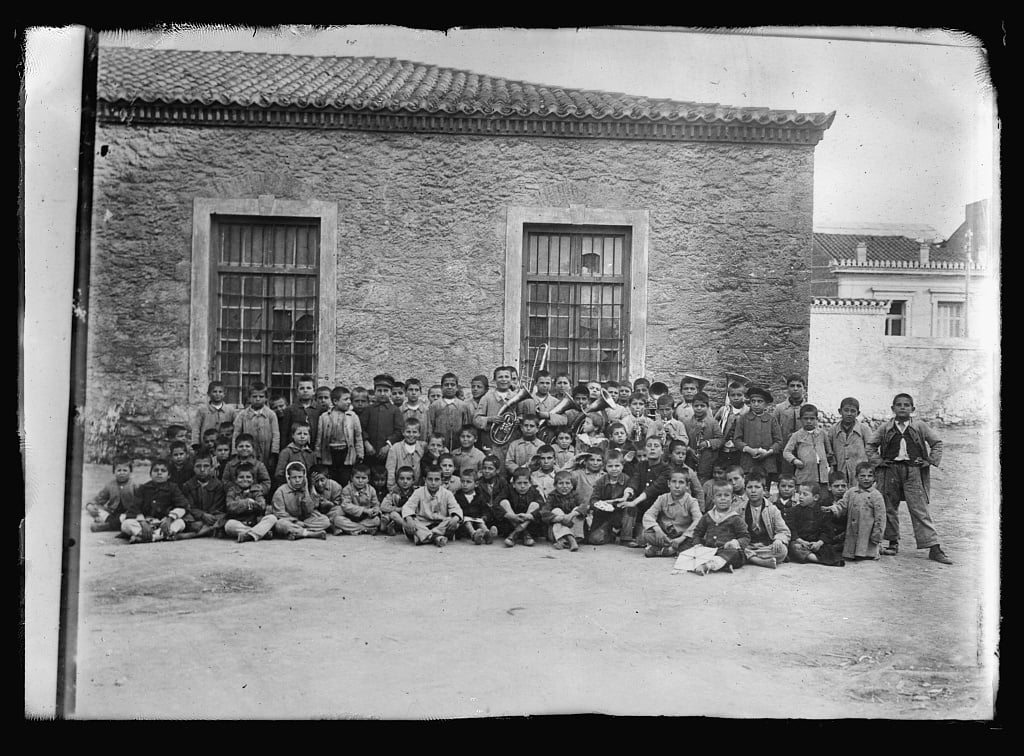 |
| Greek and Armenian orphans assembled together in a band, which played the Star Spangled Banner for Americans coming to help them, sometime during 1919. Credit: Near East Relief/Library of Congress |
As Katsos explained, the Ottoman Turkish massacre at Chios in 1802 caused 50,000 deaths, including both men and women, creating thousands of orphans from just that atrocity alone.
Dr. Hadzidimitriou explained that the Revolutionary-era orphans who came over to America during the years 1821-1829 almost always found homes with very prominent figures from American political life, including William Cullen Bryant and Samuel Gridley Howe. They received first-rate educations, including in the Greek classics, at prep schools such as Phillips Andover Academy, and later attended Harvard and other Ivy League universities.
So many of these children were not true orphans that the professor normally uses the term “refugees” to describe them.
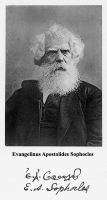 At least one of this group, Dr. Evangelinos Sophocles, went on to become a venerable — and fearsome — professor at Harvard University. This brilliant man wrote the first (and to this date, the only, according to Hatzidimitriou) complete bilingual English/Byzantine Greek dictionary in the world.
At least one of this group, Dr. Evangelinos Sophocles, went on to become a venerable — and fearsome — professor at Harvard University. This brilliant man wrote the first (and to this date, the only, according to Hatzidimitriou) complete bilingual English/Byzantine Greek dictionary in the world.
William Cullen Bryant’s adopted son Christos Evangelides was the subject of a portrait, called “The Greek Boy,” and he also wrote the earliest diary of any of these Greek orphans in existence. Now on microfilm, it provides a fascinating glimpse into the life of the young man who had lost his father (but not his mother) and was adopted into a life of privilege in America.
He later went on to return to Greece and found the “Greek Lyceum”, a school for not only boys but girls as well, which was remarkable for the time.
Hadzidimitriou also related the story of another orphan, Christophoros Castanis, who went on to write an autobiographical book called “The Greek Exile.” Castanis was one of the several refugees from that era who went back to Greece and was able to find his mother once again.
Another exceptional young Greek who had been adopted by Americans was Nick Maniates, who came to the US in 1828, who became a noted physician. And another, Lucas Miltiades, originally from Livadia, Greece, became the first Greek-American Congressman in the country, representing the state of Wisconsin.
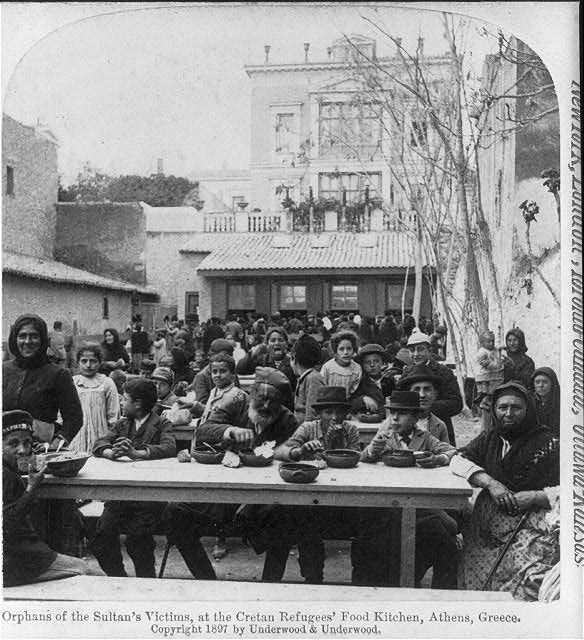 |
| “Orphans of Sultan’s victims, at the Cretan refugees’ food kitchen, Athens, Greece.” c1897. Source: Library of Congress |
As Hadzidimitriou stated, the research on this notable generation “hasn’t even scratched the surface” of their remarkable lives.
The professor explained that there is no way to know exactly how many Revolutionary-era “orphans” were adopted out of Greece, but most experts believe that approximately 40 made their way to America. Other young men were encouraged to go abroad by their parents, who feared for their safety during these times, but again, sadly, there is no record of just how many individuals this may have comprised.
Unfortunately, the fate of the next wave of Greek orphans was not as rosy as this first wave from the Revolutionary era.
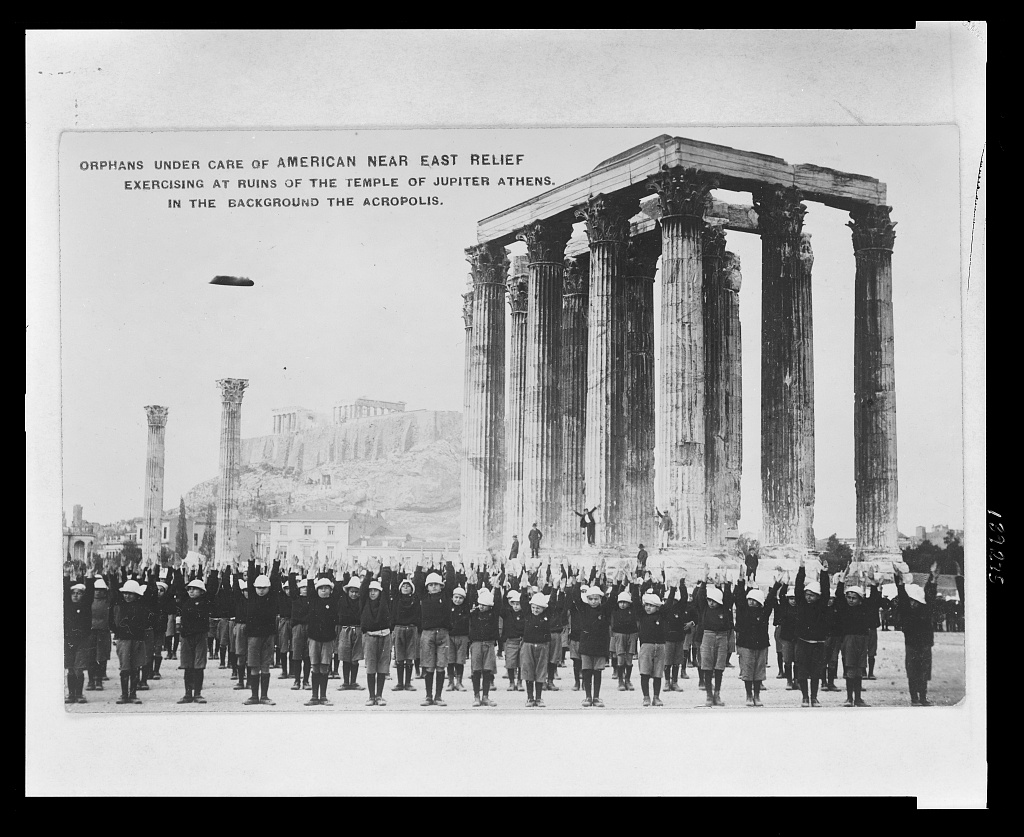 |
| “Orphans under care of American Near East Relief exercising at ruins of the Temple of Jupiter Athens; in the background, the Acropolis,” 1922. Contributed to the Library of Congress by Poulidēs, P. (Petros), 1885-1967. |
Genocide, deportation and persecution of the Greeks
Dr. Theodosios Kyriakidis, the Chair of Pontic Studies in the School of History and Archaeology at Aristotle University of Thessaloniki, related the many tragic stories which resulted from the Pontic Genocide under the Young Turks and Kemalists which took place from 1913 and 1914 onward in eastern Thrace in Asia Minor and continued in Pontus until 1923.
Widespread massacres, looting, deportations and persecutions of every kind were the norm for the Greek population of those areas at that time, resulting in an enormous displacement of peoples and the creation of thousands of helpless orphans. Kyriakidis noted that most of the massacres occurred before Greece even entered the First World War.
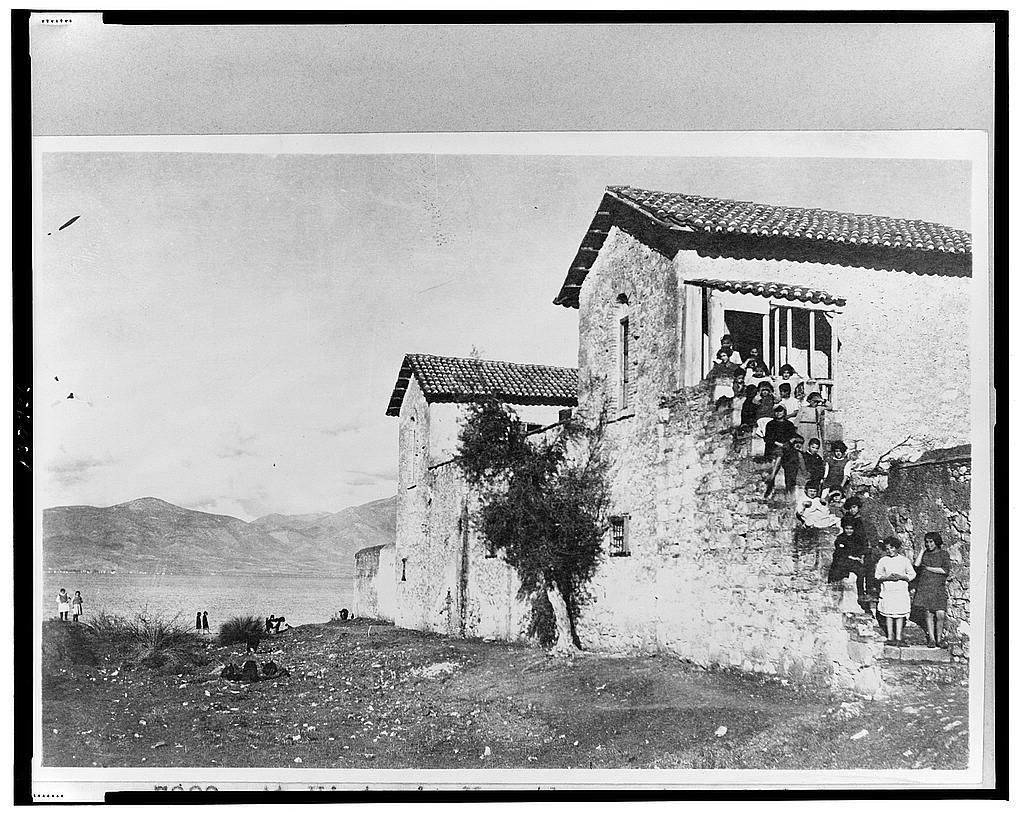 |
| Greek and Armenian orphans after they were transported to Marathon, Greece in 1915. Credit: Near East Relief/Library of Congress |
The surviving orphans were left after what the professor termed the “systematic massacres of the civilian population,” creating thousands of displaced children who had lost both parents and had been found wandering, sometimes naked, starving and cold, and who often died from these hardships.
Kyriakidis’ own maternal grandfather had been forced on one of the “death marches” that the Ottomans forced the Greeks to endure during these times, and on what he said were the “rare times” his grandfather spoke about those days, he recalled hearing the voices of what he said were “half-dead children” wearing torn clothing who had been left wandering in the mountains after their parents’ murders, crying out “Mother! Mother!”
Sometimes these children would be fortunate enough to be picked up and transported to orphanages, run by different Orthodox, Catholic, and evangelical Protestant churches around Pontus.
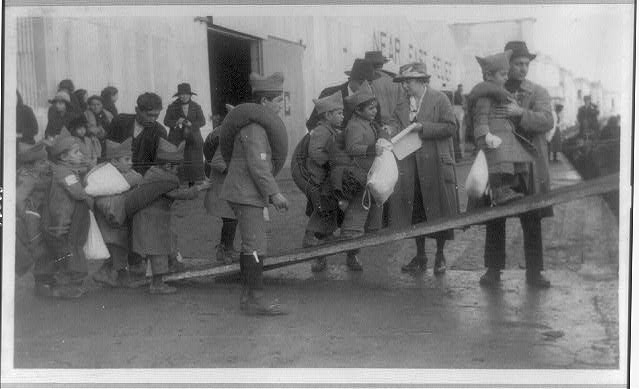 |
| “Orphans boarding barges at Constantinople, bound for Greece,” 1915. Source: Library of Congress |
But other times, these waifs would be scooped up by Turkish forces and brought into Turkish homes to live, where they became completely assimilated into Turkish culture. Their true ethnic identity would be blotted out and their actual origins would only be discovered by their descendants — who are taking DNA tests today in order to know who they really are.
This was part of an organized type of genocide, Kyriakidis stated, according to the stipulations as laid out in Article 1, Paragraph V of the Convention for the Prevention and Punishment of the Crime of Genocide, which deals with the forced assimilation of children.
Thousands of Greek, as well as Armenian and Assyrian, children were often forcibly placed into Turkish families, and thereby lost their cultural and religious heritage forever.
“Become Islamic and have as much bread as you want”
The Greek Orthodox Church had orphanages both in Constantinople and the provinces already, before the Genocide, notably in Halki and Prinkipo, as Kyriakidis stated. From there the children gathered up after the Genocide were often transported to the Greek mainland.
There were valiant efforts made to save children from what the professor called “violent Islamicization.” According to records kept by the Roman Catholic authorities who managed the orphanages, many of the children they were taking care of had been told “Become Islamic and have as much bread as you want” by their new Turkish families.
The American response to the genocide of the Greek, Armenian and Assyrian children was what the professor termed “extremely dynamic,” with bonds being raised by relief committees so that thousands of dollars of aid could be donated to the effort to save as many as possible.
As a result, the Greek Relief Committee, which worked with a network of missionaries and diplomats, as well as the YMCA, the American Red Cross, the Near East Society and the American Women’s Hospitals, were able to help many thousands of children. Kyriakides believes that many orphans were saved from certain death as a result of these organizations. Many of them were relocated to Athens and other Greek cities and as many as 7,500 orphans were resettled in Corfu alone.
A total of 450 orphaned minors from Carpathia, from ages 1-12, who had been discovered naked or wearing rags, were among the 15,000 that agencies attempted to resettle on Mt. Athos.
Survivors of these unfortunates also wrote about their experiences as children, most notably in the book called “Tamama,” by George Andreadis, who had been taken by Turkish authorities as a boy. The book was adapted into a feature film called “Waiting for the Clouds” by a Turkish director.
Of course, Kyriakidis says, it is impossible to know the real number of all those who were orphaned during this time, especially since so many died of hunger and other privations before they could even be rescued.
“Hundreds of thousands of souls were saved”
Andreadis said by his reckoning that 25,000 waifs were gathered together by American agencies and churches, with 10,000 being sent to American families for adoption and 15,000 sent to the Ionian islands. A projected total of orphans from the 1915-1930 era rescued by such American individuals and organizations, according to Kyriakidis, most likely amounted to 132,000 — mainly Greek and Armenian — children.
Kyriakidis could only say in conclusion that “Thanks to the actions of these individuals, hundreds of thousands of souls were saved.”
Mass adoptions of orphans from Greece in the 1950s and 1960s
Dr. Gonda van Steen, of King’s College London, spoke of the much more recent mass adoptions that took place during the Cold War, when Greece was still a poor nation and Americans desired the creation of large families during the baby boom.
By her estimates as many as 3,200 Greek children were adopted into American families from the 1950s through 1962, at a time when Greece was suffering the effects of the civil war. Sometimes the children would also be relinquished by their own families who were living in extreme privation.
Many of these children, however, would be adopted by their relatives who were already living in the Americas. In the last ten years, she says, many of the children from this group who did not have any knowledge of their origins have discovered their Greek heritage through recent advancements in DNA testing and genealogical research.
The professor, who wrote the book “Adoption, Memory and Cold War Greece,” encourages all those people of Greek origin who were adopted into American and European families in the last several decades to contact her so that she may help to connect the dots back to their history in Greece, bringing their stories full circle.
Source: Greek Reporter
